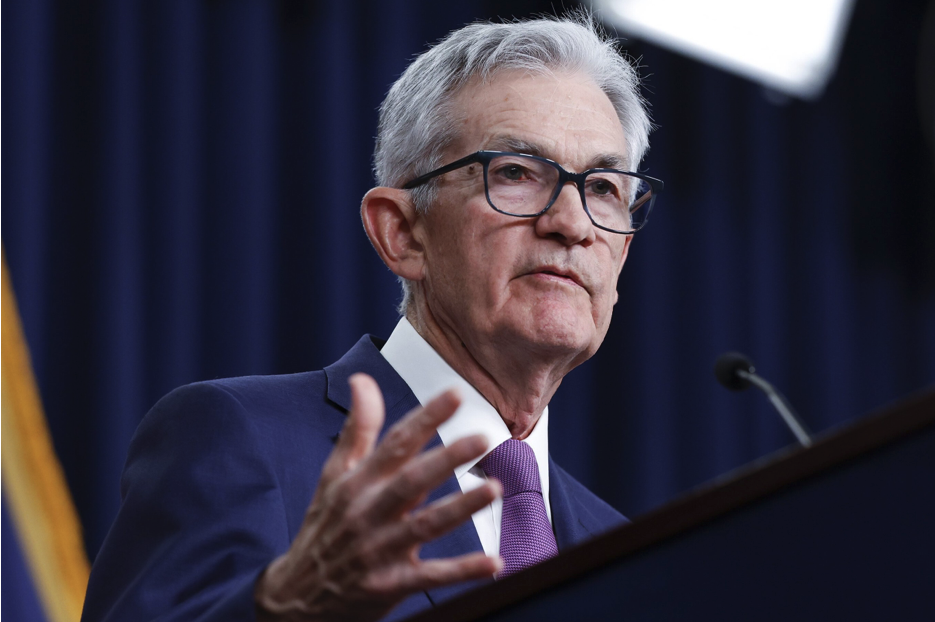Market Watch: The U.S. dollar is still the world’s currency — but maybe not for much longer

- Concerns are rising about the sustainability of U.S. government debt and spending
- Expectations are high for the dollar to lose its leading reserve currency status in the next five to 15 years.
For decades, the U.S. dollar has enjoyed a unique status as the world’s dominant reserve currency, granting the United States significant financial advantages.
Yet without credible progress to address the U.S. federal budget deficit beyond statements of intention, concerns are rising about the sustainability of U.S. public finances and the dollar’s future as the world’s reserve currency.
The implications of such a shift could be profound — not just for the U.S., but for the entire global financial market.
As it stands, the U.S. budget deficit sits at around 6%-7% of GDP. President Trump has said he wants to lower the deficit to 3% by 2028. The quagmire is in how to achieve such a feat while also extending and even adding to tax cuts for both individuals and businesses.
In this context, Trump’s use of tariffs can be seen as an attempt to rectify the balance by forcing foreign economies to contribute more. It remains unclear, however, the extent to which such potential revenues can counterbalance the announcements made on the fiscal front, including promises to eliminate taxes on overtime pay, tips and Social Security benefits, which could add to the deficit.
The dollar may hang in this balancing act. We are hearing much about the efforts of the so-called Department of Government Efficiency (DOGE) to cut government spending in targeted areas while maintaining a campaign promise not to touch entitlement programs. Yet the list of “pay-fors” has become slim, and tariffs and some form of reduced military spending seem to be the only remaining budget-balancing, or at least deficit-reducing, moves. Recently, Trump administration officials floated the idea of a trilateral agreement between the U.S., Russia and China to cut military spending by 50%, which seems highly unlikely.
And while new U.S. tariffs may raise revenue for the federal government, the economic implications are far from clear. Tariffs may lead to higher prices for consumers and retaliatory measures from trading partners, thus disrupting the global, and indeed the U.S., economy.
The CFA Institute surveyed more than 4,000 global financial professionals before the 2024 presidential election, asking about the U.S. debt and the future of the dollar as the world’s reserve currency. A remarkable 77% of respondents said U.S. government finances are unsustainable, and close to two-thirds expect that the dollar will lose its leading reserve-currency status in the next five- to 15 years.
A plurality of respondents (38%) believed the U.S. dollar would be displaced by a multipolar currency system, where several currencies share global reserve status. This reflects a strengthening view that the global financial system is moving toward diversification, with no single currency likely to replace the dollar outright. Such a transition could lead to greater currency competition and increase uncertainty in global financial markets — a development that would directly impact the U.S. dollar’s position.
One of the major factors behind the growing skepticism of the dollar’s future is the unsustainable level of U.S. debt. The U.S. debt-to-GDP ratio stands at a historic high, reaching levels last seen as World War II was ending. About 61% of CFA Institute survey respondents do not believe the U.S. will be able to reduce its debt-to-GDP ratio to more moderate levels in the coming years. Meanwhile, foreign ownership of U.S. Treasurys, a key marker of confidence in the U.S. government, has declined to 23%. The erosion of foreign demand for U.S. debt could lead to higher interest rates, making it more costly for the U.S. to finance its spending.
Investment professionals worry that errant U.S. policy moves or geopolitical missteps could cause a broad and lasting disruption across the financial world. Geopolitical tensions, falling demand for U.S. Treasurys and the threat of an actual debt default — as Congress grapples with the debt ceiling — could all act to reduce global trust in the U.S. dollar.
In years past, when the U.S. had a better financial cushion, manageable financial ratios and the discipline to match, its financial infrastructure weathered several missteps. In the span of two decades, the U.S. economy withstood the dot-com crash, the 2008-09 financial crisis and its subsequent bailouts, a global pandemic countered with massive Treasury-funded cash infusions, and regional-bank disruptions. As a result, the U.S. Treasury has been depleted, yet most politicians seem untroubled about having put the U.S. system and taxpayers in jeopardy of an untenable future.
The CFA Institute survey shows it is time to stop stretching the fiscal rubber band and begin concrete efforts toward fiscal responsibility. The U.S. still has time. According to the survey, 69% of respondents believe the U.S. government should prioritize cutting non-mandatory spending to reduce its ballooning debt. Without meaningful fiscal reform, however, the U.S. and the global markets both risk a financial reckoning with far-reaching consequences.



